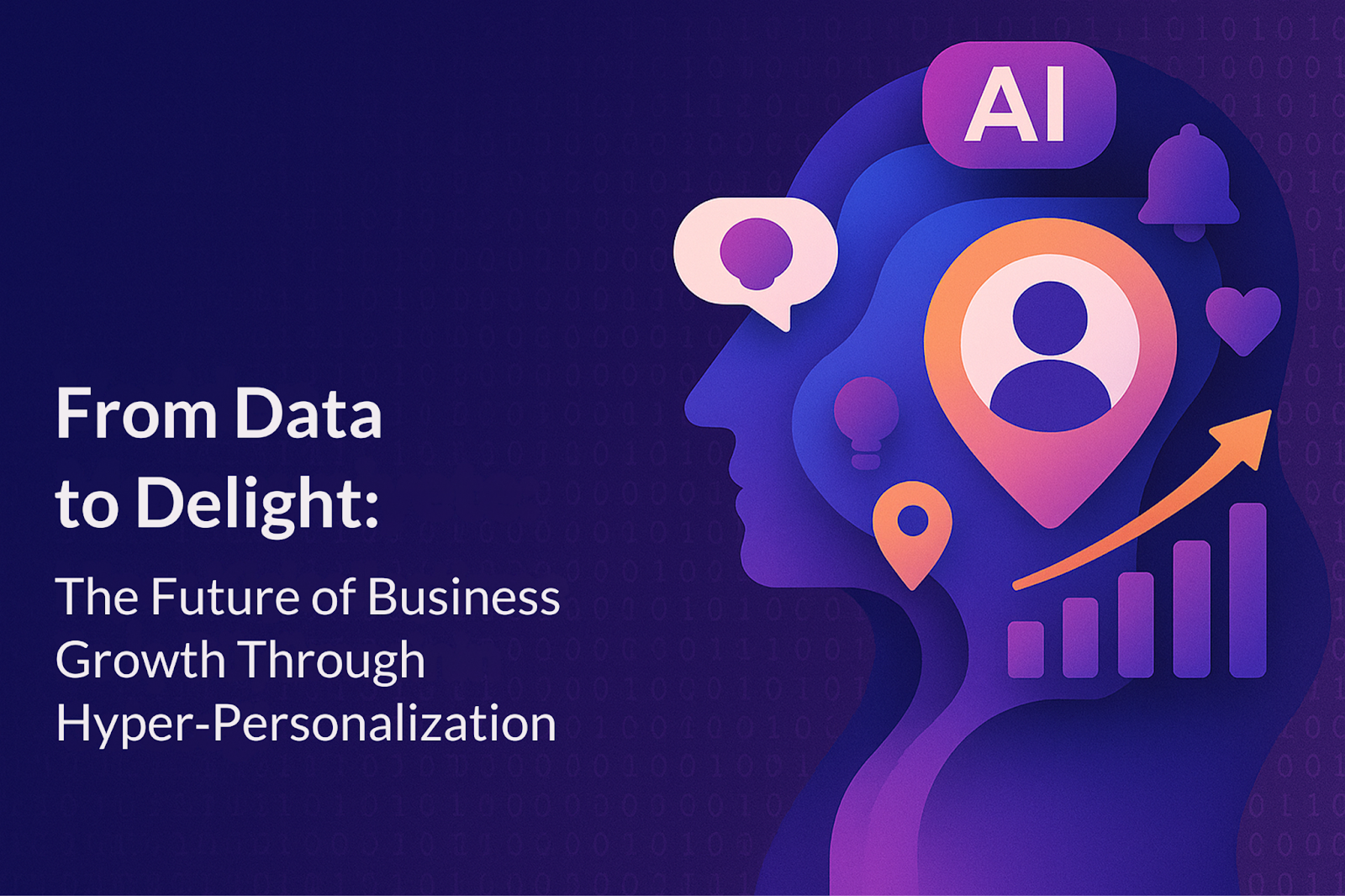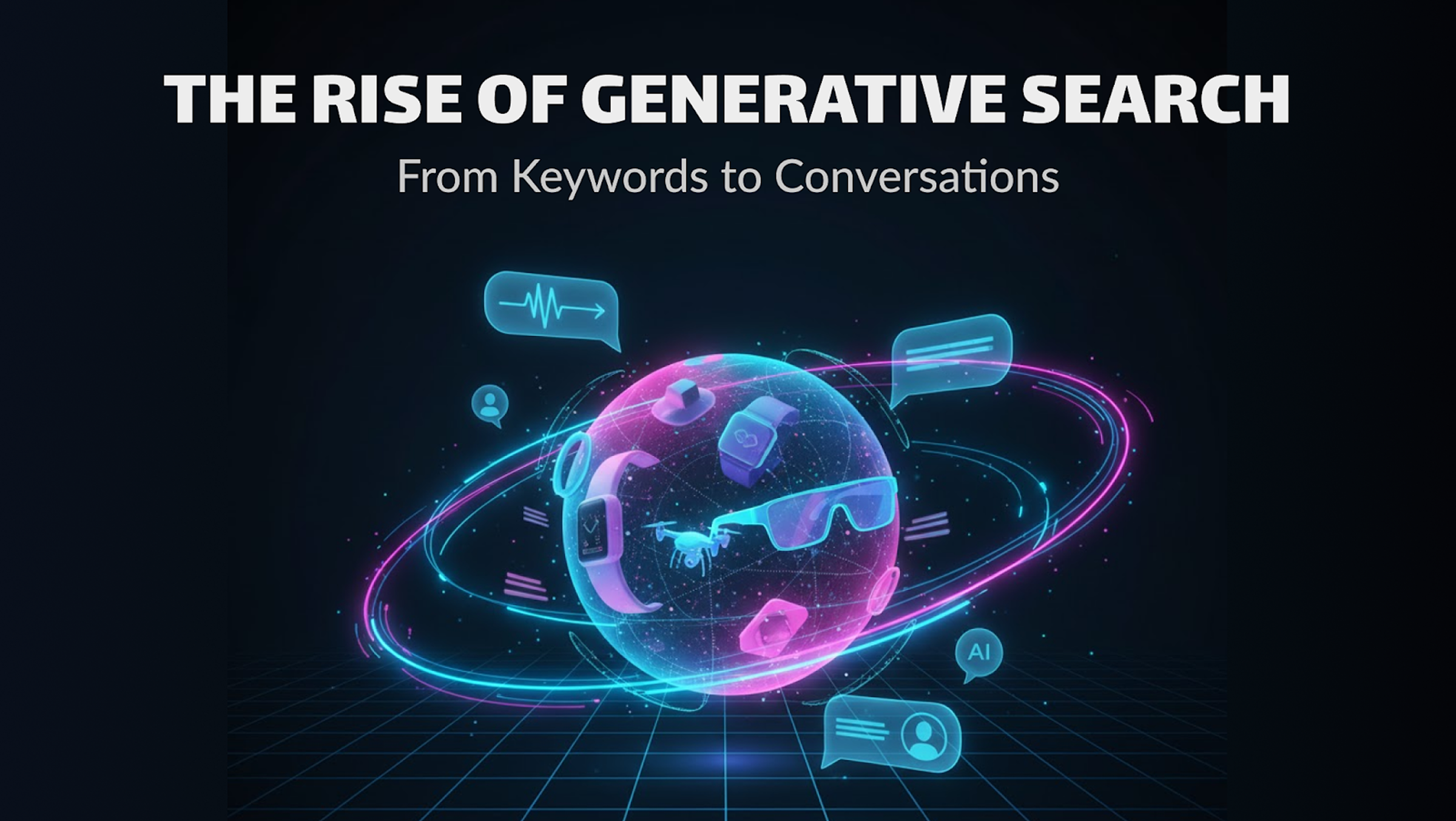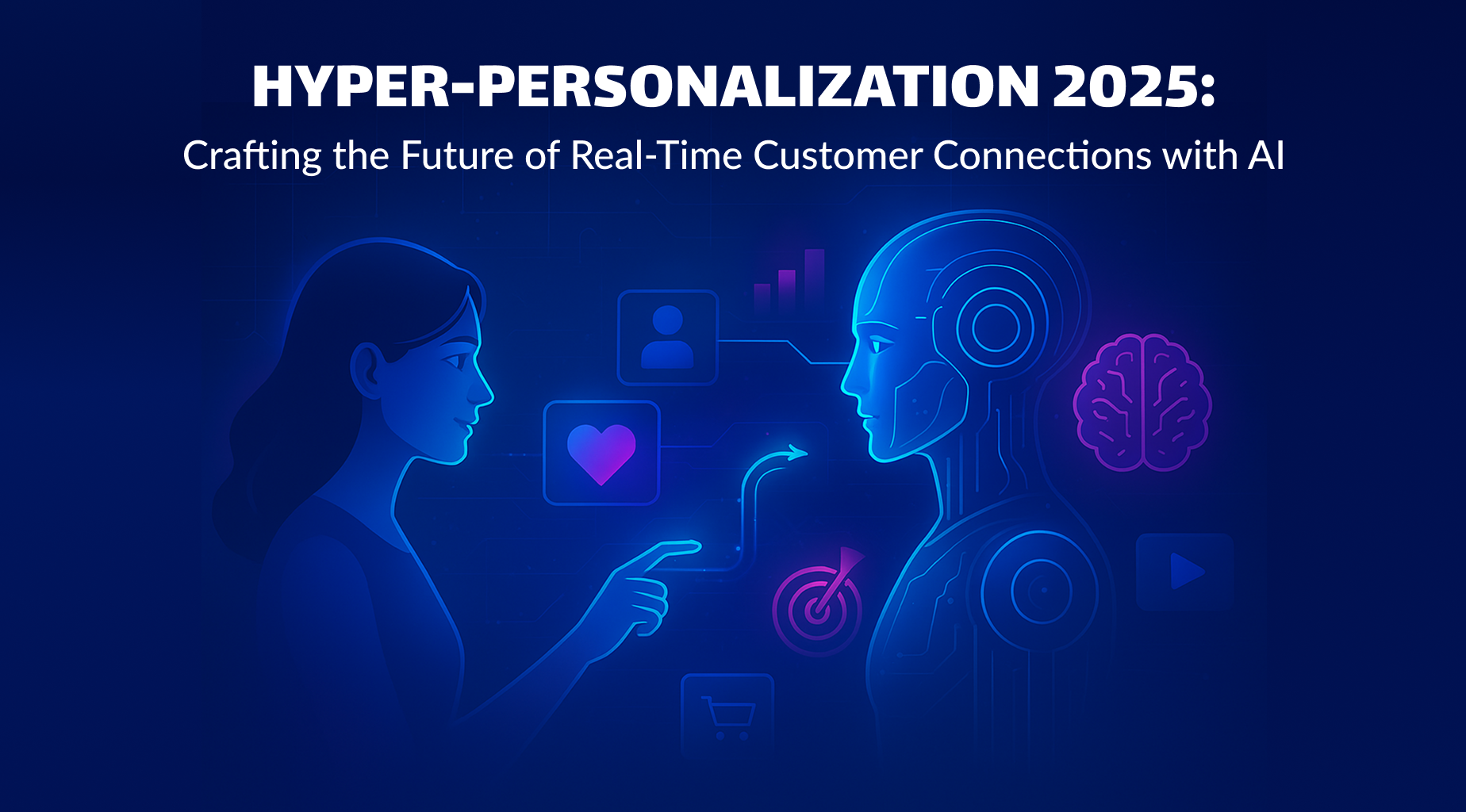From Data to Delight: The Future of Business Growth Through Hyper‑Personalization
The world of digital marketing is undergoing a profound transformation, fueled by the rapid advancement of artificial intelligence (AI) and cutting-edge technologies. At the heart of this shift lies hyper‑personalization—an approach that transcends the limitations of traditional marketing by treating each customer as a “one‑of‑a‑kind audience” and delivering highly relevant, individualized experiences (Potwora et al., 2024). AI and machine learning (ML) models are the primary drivers behind this transformation (Khang et al., 2024).
Hyper‑Personalization & Customer Experience
Hyper‑personalization rewrites the rules for marketers. It involves using advanced technologies to tailor interactions based on customer preferences, desires, and behaviors. This approach not only remembers consumers’ past interactions but often predicts their needs before they themselves are aware of them (Khang et al., 2024). Customers value brands that recall their previous experiences (Hou, 2024), and according to a Salesforce survey, 83% of consumers and business buyers report greater loyalty to companies that deliver consistent experiences across departments (Hou, 2024).
The Role of Data & Insights
The foundation of hyper‑personalization lies in data‑driven decision‑making (Khang et al., 2024; Potwora et al., 2024). AI and ML analyze large volumes of consumer data to generate deep insights into behaviors, preferences, and motivations. This data stems from multiple sources, including website interaction patterns, purchase history, and social media activity (Khang et al., 2024).
However, only about half of marketers feel confident that their organizations are effectively deriving meaningful insights from their collected data (Hou, 2024). Similarly, many marketers remain unconvinced that their companies are gathering “sufficient” or “more than sufficient” data. Organizations often rely heavily on traditional channels like websites and emails, while missing opportunities across other touchpoints (Hou, 2024).
Proper organization and central integration of data are critical: unstructured data is often worthless (Hou, 2024). Unified customer datasets are necessary to deliver experiences that signal a true understanding of users. For instance, Sam’s Club leveraged its deep customer data to build a targeted advertising platform that third‑party brands could access—a strategic example of unlocking data value (Hou, 2024).
Impact on Business Growth & Competitive Advantage
Hyper‑personalization is a strategic approach that delivers tangible business benefits, measurable results, and a competitive edge.
- Increased Customer Engagement & Loyalty: AI systems analyze individual consumer behavior to craft messages that better resonate with target audiences. Email engagement can increase by 50%, targeted ads by 140%, and product recommendations by 125% (Khang et al., 2024).
- Stronger Brand Advocacy: When customers receive experiences closely aligned with their preferences, their satisfaction rises, and they become brand advocates—driving organic growth and word‑of‑mouth marketing (Potwora et al., 2024).
- Competitive Advantage: Data‑driven AI systems enable faster and more accurate responses compared to competitors, providing brands with strategic differentiation (Khang et al., 2024).
- Dynamic, Real‑Time Content: AI can personalize website and email content in real time based on user behavior (Potwora et al., 2024).
- Enhanced Customer Lifetime Value (CLV): Strategic use of data not only increases CLV but also optimizes marketing budget allocation (Potwora et al., 2024).
Ethical Considerations & Balanced Approach
Despite its benefits, hyper‑personalization raises significant ethical concerns. Issues around consumer privacy, surveillance anxiety, and algorithmic misrepresentation are critical challenges in digital marketing (Hou, 2024; Khang et al., 2024).
Kate Crawford’s concept of “surveillance anxiety” refers to the discomfort individuals feel when overly tracked by their data footprint (Hou, 2024). Shoshana Zuboff’s warnings of “surveillance capitalism” highlight the risk of data being monetized at the expense of individual privacy (Potwora et al., 2024). Consequently, achieving a balance between automation and human intuition is essential, both ethically and in terms of effectiveness.
Future Vision & A New Era with Cypien
The future of digital marketing will be shaped by hyper‑personalization and real‑time customer experiences. This evolution demands more than just communication—it requires empathy, relevance, and lasting emotional connection. But realizing this potential isn't just about technology; it’s also about strategy, sensitivity, and delivering brand‑aligned content.
Cypien sits at the center of this transformation. By integrating data analytics, personalization, and user‑centric content creation, Cypien’s AI agent team blends automation with emotion, data with intuition, and speed with scalability.
In short: hyper‑personalization is no longer a luxury—it’s the new standard for growth. Brands ready to adopt this standard today will find in Cypien not just a tool, but a growth‑focused partner.
References
Baer, J., & Brown, A. (2023). How Sam’s Club creates community with social media. Convince & Convert.
Convince & Convert/ICUC. (2023). The state of data-driven personalization in marketing: Opportunities and challenges in AI, social media and more. ICUC.
Crawford, K. (2014). The anxieties of big data. The New Inquiry.
Dumitriu, D., & Popescu, M. A. M. (2020). Artificial intelligence solutions for digital marketing. Procedia Manufacturing, 46, 630–636. https://doi.org/10.1016/j.promfg.2020.03.091
Fortino, D. (2023). Interview with Zontee Hou. 18 July.
Haleem, A., Javaid, M., Qadri, M. A., Singh, R. P., & Suman, R. (2022). Artificial intelligence (AI) applications for marketing: A literature-based study. International Journal of Intelligent Networks, 3, 119-132.
Hou, Z. (2024). Data-Driven Personalization: How to Use Consumer Insights to Create Meaningful Experiences. Kogan Page.
Islam, S. (2023). Interview with Zontee Hou. 24 July.
Khang, A., et al. (2024). Revolutionizing the AI-Digital Landscape: A Guide to Marketing Innovation. Taylor & Francis.
Potwora, A., et al. (2024). The Use of Artificial Intelligence in Marketing Strategies: Automation, Personalization, and Forecasting. (White Paper).
Walmart. (2023). Real-time intelligent retargeting launches on Sam’s Club member access platform (MAP). https://corporate.walmart.com
Zuboff, S. (2023). The Age of Surveillance Capitalism. PublicAffairs. (Alıntılanan: Potwora et al., 2024)








